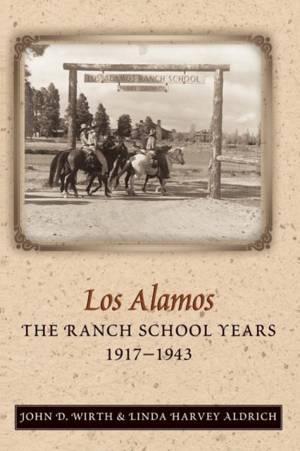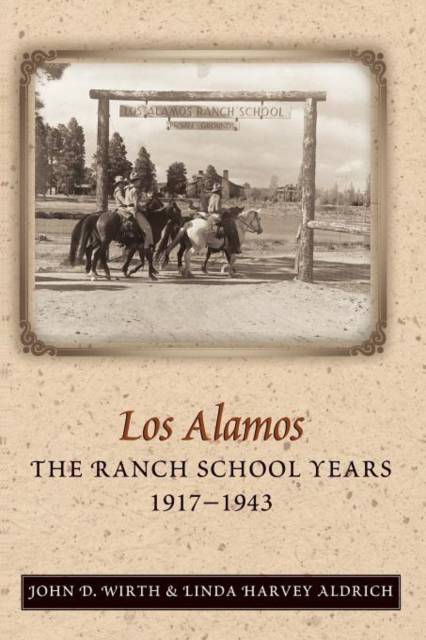
- Retrait gratuit dans votre magasin Club
- 7.000.000 titres dans notre catalogue
- Payer en toute sécurité
- Toujours un magasin près de chez vous
- Retrait gratuit dans votre magasin Club
- 7.000.0000 titres dans notre catalogue
- Payer en toute sécurité
- Toujours un magasin près de chez vous
Los Alamos
The Ranch School Years, 1917-1943
John D Wirth, Linda Harvey AldrichDescription
Twenty-five years before the Manhattan Project created the town of Los Alamos, the Pajarito Plateau was home to an elite prep school for boys, ages twelve to eighteen. The Los Alamos Ranch School combined a robust outdoor life and a carefully cultivated wilderness experience with a rigorous academic program and the structured discipline of a Boy Scout troop, perfectly mirroring the Progressive Era's quest for perfection.
John Wirth's father, Cecil, taught at the school and directed its summer camp. John spent his early childhood at the school along with his brother Tim, later a U.S. Senator from Colorado. Drawing on oral accounts, memoirs, and archival documents, as well as John's firsthand knowledge and family lore, the authors situate the school within the educational trends of the day and New Mexico's cultural milieu.
Wirth and Aldrich examine the influence of the school's controversial director, Albert J. Connell, who was roundly disliked by two of the best-known students, Gore Vidal and William S. Burroughs. Many other students reported their time at the school to be a profoundly positive, often life-changing, experience. Additional chapters recount the growing-up experiences of ranch workers' children and the role the school played in their lives and those of area residents.
Spécifications
Parties prenantes
- Auteur(s) :
- Editeur:
Contenu
- Nombre de pages :
- 352
- Langue:
- Anglais
Caractéristiques
- EAN:
- 9780826328847
- Date de parution :
- 16-08-10
- Format:
- Livre broché
- Format numérique:
- Trade paperback (VS)
- Dimensions :
- 156 mm x 234 mm
- Poids :
- 494 g

Les avis
Nous publions uniquement les avis qui respectent les conditions requises. Consultez nos conditions pour les avis.






